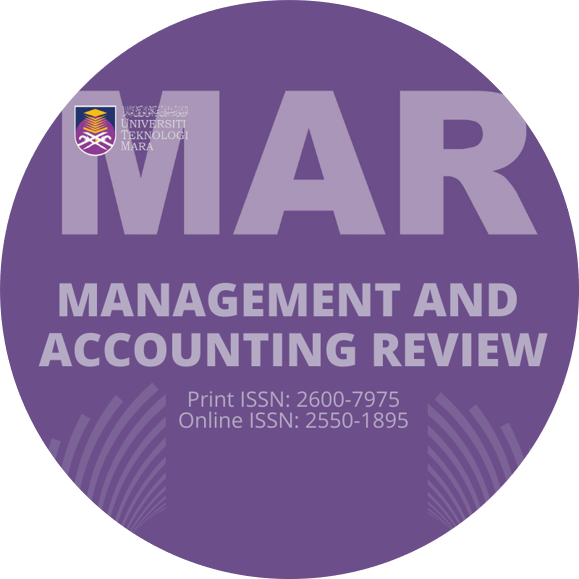Volume 19 No. 3, December 2020
ARTICLE INFO
Article History:
Received: 31 May 2020
Accepted: 10 October 2020
Available online: 30 December 2020
MANAGEMENT & ACCOUNTING REVIEW, VOLUME 19 NO 3, DECEMBER 2020
Adopting The Planned Behavioural Theory in Predicting Whistleblowing Intentions Among Indonesian Public Officials
Maheran Zakariaa, Normah Omarb, Ida Rosnidahc, Hasnun Anip Bustamana and Siti Nur Hadiyatic
aUniversiti Teknologi MARA, Kelantan, Malaysia
bUniversiti Teknologi MARA, Shah Alam Malaysia
cUniversiti Swadaya Gunung Jati, Indonesia
ABSTRACT
Whistleblowing has been accepted worldwide as one of effective internal controls to prevent corruption. Nurturing whistleblowing in the workplace is expected to accelerate integrity specifically among public officials. Intrigued by its attributes and emulating Planned Behavioural Theory, the objective of this study was to examine attitude, subjective norms and perceived behavioural control as predictors of whistleblowing intentions. Whistleblowing intentions were assessed in two contexts namely internal and external whistleblowing intentions. A total of 300 questionnaires were randomly e-mailed to public officials of a public institution in the Cirebon province, West Java, Indonesia. From this, 152 officials responded which accounted for a 50.7 percent rate of response. Partial Least Square (PLS) version 3 of Structural equation modelling (SEM) was used to analyse the data. Results indicated that attitude and subjective norms were significant predictors of both internal and external whistleblowing intentions. However, none of the whistleblowing intentions were related to perceived behavioural control. The discoveries contribute beneficial insights for policy makers, government, academic fraternities and the like in the area in which positive attitude and support from referent groups will trigger them into openness and transparency; and thus, more likely to influence their whistleblowing intentions. Hence, implementing whistleblowing practices in public institutions will enhance the public’s perceptions on the integrity of the Indonesian public sector and promote the country towards a corrupt free nation.
KEYWORDS: attitude, external, intention, internal, perceived behavioural control, subjective norms, whistleblowing
KEYWORDS: attitude, external, intention, internal, perceived behavioural control, subjective norms, whistleblowing





